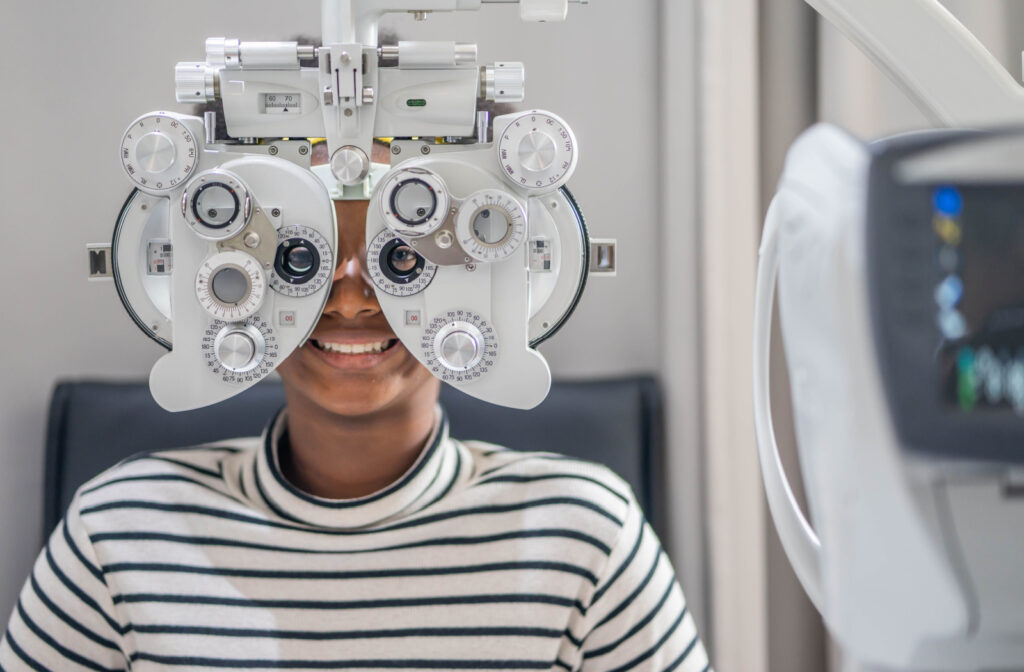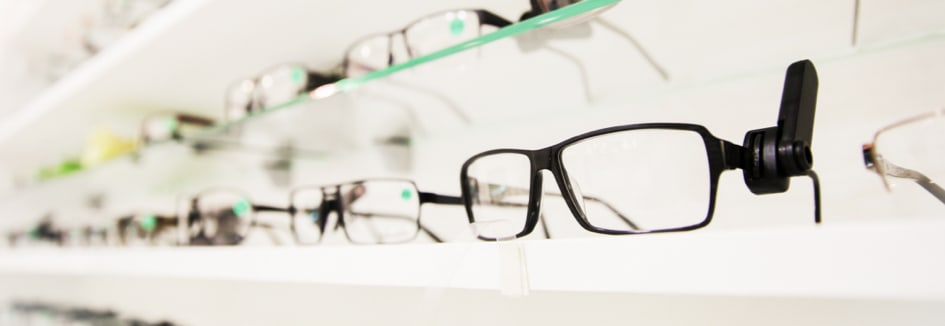Our eyes are extraordinary—not only for capturing the world’s beauty but also for offering valuable insights into our health. Comprehensive eye exams go beyond assessing basic visual clarity to detect various vision conditions and eye health issues, guiding us toward clear vision and supporting our well-being.
Some of the health and vision conditions an eye exam can detect include:
- Refractive errors, like myopia and presbyopia
- Eye diseases, like cataracts and glaucoma
- General and systemic health conditions
- Issues affecting vision function and eye coordination
Learning about the power of an eye exam and the diverse range of conditions and health issues that these comprehensive evaluations can detect could be helpful for determining your own needs for eye care.
More than Just a Prescription
Eye exams are not limited to a mere assessment of our ability to see clearly. These comprehensive evaluations involve various tests performed by skilled optometrists and ophthalmologists that can lead to a deeper understanding of your ocular health and potential systemic health issues.
Eye exams are more than just a way to find out if you need glasses or contact lenses. An eye exam can also assist with identifying the onset of subtle eye conditions such as glaucoma, cataracts, and macular degeneration. Without adequate treatment, these illnesses might cause loss of vision over time.
Routine eye exams are essential because our eyesight can change and decline over time. When you maintain a regular checkup routine, eye doctors can spot changes in your vision and address any potential difficulties to preserve your eye health.
Refractive Errors
One of the most common purposes of an eye exam is to diagnose and correct refractive errors causing blurry vision. These errors include nearsightedness (myopia), farsightedness (hyperopia), and astigmatism. Prescriptions for eyeglasses or contact lenses can correct these visual disturbances, helping individuals see clearly again.
Eye Diseases
Eye exams play a crucial role in detecting various eye diseases, including:
- Cataracts: This condition is related to a clouding of the eye’s natural lens, leading to blurred vision and eventual vision loss if left untreated.
- Glaucoma: Glaucoma refers to a group of eye conditions that damage the optic nerve, often due to increased intraocular pressure, and can cause vision loss if not managed promptly.
- Macular degeneration: This is a condition that affects the central part of the retina (macula), leading to gradual central vision loss.
- Diabetic retinopathy: This is a complication of diabetes that can damage the blood vessels in the retina and cause vision impairment or blindness.
- Retinal detachment: Retinal detachment is a medical emergency where the retina separates from the underlying tissue and requires swift attention to prevent vision loss.
- Conjunctivitis: This is an infection or inflammation of the clear membrane that lines the eyelids and covers the whites of the eyes. Conjunctivitis can be caused by bacterial or viral infections and allergic reactions.

Systemic Health Conditions
Your eyes can provide valuable insights into your overall health. During an eye exam, an eye doctor may detect signs of systemic health conditions, such as:
- Diabetes: Diabetes can cause diabetic retinopathy and changes in the blood vessels of the eye, which can be detected during an eye exam and managed with diabetic eye exams.
- Hypertension: High blood pressure can lead to changes in the blood vessels of the retina, known as hypertensive retinopathy.
- Autoimmune diseases: Certain autoimmune conditions, such as rheumatoid arthritis or lupus, may have ocular manifestations, including dry eye syndrome or inflammation of the eye’s tissues.
- Thyroid disorders: Hyperthyroidism or hypothyroidism can affect the tissues around the eyes, leading to swelling or dry eye symptoms.
Visual Function & Eye Coordination
One of the most well-known reasons to get an eye exam is to assess visual function and eye coordination—also known as your visual acuity. An eye exam helps confirm both your eyes work together harmoniously with optimal visual skills, like depth perception and eye-teaming abilities.
Your Gateway to Ocular Health
An eye exam is not just about evaluating your ability to see—it can be an all-encompassing gateway to your ocular and overall health.
Eye exams can detect several conditions, from refractive errors and eye diseases to potential systemic health issues. Regular eye exams are not only essential for maintaining clear vision but also crucial for early detection and timely management of various health conditions.
As we cherish our eyes as priceless treasures, let’s embrace eye exams, a window to our visual clarity and overall well-being. Book an appointment today to speak with our team at Rock optiX about your vision—and remember, an eye exam is more than meets the eye. It can be a path to a healthy, clear future.





















